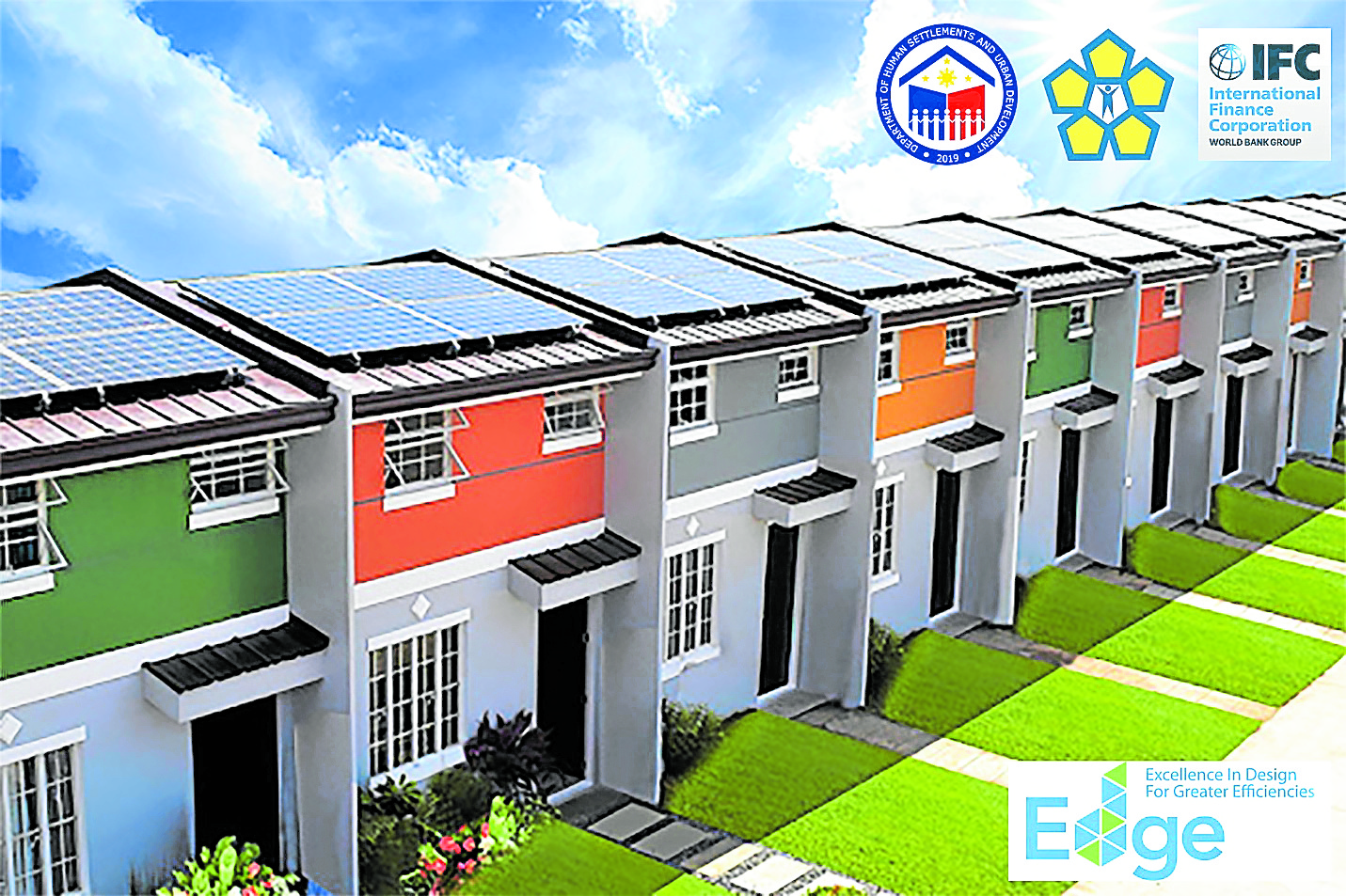BALAI BERDE promotes resilient recovery in PH housing with IFC’s EDGE
Making affordable mortgages available to more Filipinos has been a top priority of the Philippine government for nearly five decades. As the market continues to develop and sustainability increasingly became part of the country’s agenda, the importance of delivering greener housing has also become a top priority.
The National Home Mortgage Finance Corp. (NHMFC), one of the government’s key shelter agencies under the Department of Human Settlements and Urban Development (DHSUD), was created in 1977 to address the housing needs of the Filipino people through the development and operation of a secondary mortgage market. NHMFC buys housing loans originated by banks, real estate developers and other financing entities, and sells them to investors through the issuance of asset-backed securities. More recently, NHMFC’s mandate has been to make the homes that those loans are tied to greener.

By incorporating the EDGE standard, NHMFC and IFC are supporting a greener, more resilient economic recovery from the COVID-19 pandemic, in the housing market and beyond.
Resilient homes
This mandate is gaining traction, thanks to the BALAI BERDE program. Launched in 2020, BERDE—which stands for “Building Eligible Resilient Dwelling for Everyone”—acquires mortgages from public and private housing loan originators that design, develop and finance green housing projects. It finances these purchases by issuing green bonds, which offer climate-conscious investors an opportunity to back affordable residential projects that consume less energy, water and embodied energy in materials. This agenda has become even more critical in the face of the COVID-19 pandemic, which has squeezed the incomes of Filipinos, tightened public and private purse strings, and highlighted the importance of promoting a sustainable recovery.
But how can investors, banks, homeowners, developers and state agencies such as NHMFC trust and communicate that a project is truly green? Using an independently certifiable, internationally accepted standard is key.
Thus, the NHMFC this month began using EDGE (Excellence in Design for Greater Efficiencies) for all housing projects enrolled in the BALAI BERDE Program. An innovation of the International Finance Corp. (IFC), EDGE is a green building standard and certification system that makes it easy and inexpensive to design and certify resource-efficient and zero-carbon structures.
Designed to make the construction of green buildings more inclusive for emerging market developers, EDGE software—which is free of charge—helps them identify the most cost-effective sustainability measures. This reduces energy, water and material use, which also lowers utility bills for owners and tenants.
“EDGE is the ideal tool for NHMFC’s BALAI BERDE Program,” DHSUD Secretary Eduardo Del Rosario said. “Its global standards of certifying green projects cater not only to high and medium rise buildings, but also to low rise homes.”
Addressing shortfall
According to Del Rosario, there could be a housing shortfall of 22 million homes in the Philippines in the next two decades in the absence of strategies to strengthen production.
“The BALAI BERDE Program helps address this shortfall, and by incorporating the EDGE standard, NHMFC and IFC are supporting a greener, more resilient economic recovery from the COVID-19 pandemic, in the housing market and beyond,” he added.
Using EDGE will help NHMFC assure investors that proceeds from its green bonds will be used for projects that genuinely help mitigate the effects of climate change. It also means that the loans the NHMFC acquires must be for homes that use at least 20 percent less energy, water and embodied energy in materials than a typical residential property. Homebuyers also benefit from the program since eligible housing units are covered by a lower, annual fixed interest rate of 3 to 6 percent with a term of five to 30 years for loans not exceeding P3 million. For lower income Filipinos with monthly incomes of P20,000 or less, the program offers an interest subsidy of 0.5 to 1 percent for the first 10 years.
“This strategic partnership with NHMFC encourages more green housing development, a sector that has largely lagged behind commercial real estate in the transition to a low-carbon economy,” said Jean-Marc Arbogast, country manager for the Philippines at IFC. “It comes at a critical time, as the pandemic has highlighted the need to increase the supply of affordable and green homes for everyone in the country.”
Green buildings clearly have an impact—from the corporate bottom line to a homeowner’s pocket. EDGE-certified houses built by local developer Imperial Homes Corp., for example, have benefited from energy, water and materials savings of 42, 20 and 26 percent respectively, as well as savings of over P500 a month on utility bills for homeowners and tenants.
For investors, EDGE simplifies impact reporting of environmental outcomes, and is recognized by standard-setting bodies such as the International Capital Markets Association and the Climate Bonds Initiative.
